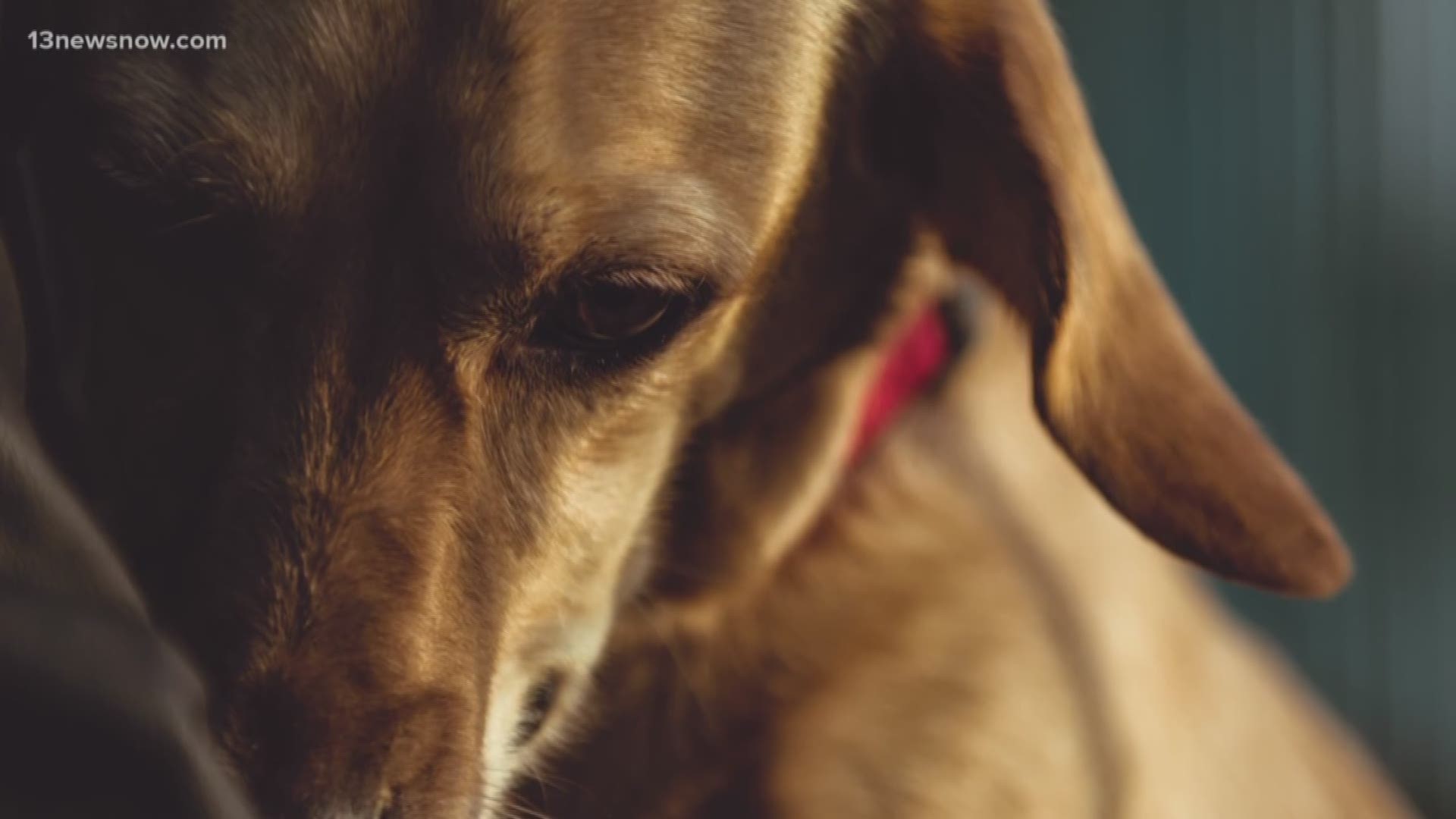NORFOLK, Va. — We love our pets and our pets love us. But sometimes that attachment can evolve into full-blown anxiety, especially when it's time to go to work, school or on vacation.
Sydney Warner, a pet behavior expert, sheds some light on this issue.
"Separation anxiety is a much bigger, broader topic than a lot of people tend to realize," she said.
A pet's attachment to their humans or other dogs can grow so strong that when they are absent, the dog essentially becomes panicked.
"They are in severe distress or [suffer] severe anxiety at being away from their person. [They're] feeling confined or feeling isolated; they're looking for an escape," Sydney explained.
The distress can get so severe that the pets can become destructive or even harm themselves.
"They are targeting doorways or windows or if they are stuck in a crate, trying to break out of the crate. So you'll see, like, broken teeth or they have injured their noses," Sydney said.
So how can we end their anxiety? Your best bet is to reach out to a behavior professional.
"It's not simple training, it's behavior modification. We are dealing with an emotional state that is driving those behaviors" Sydney explained.
Sydney said that anxiety is not something that shows up overnight, it is something that builds over time and becomes a bigger problem the longer it goes unchecked.
She said that early, preventative measures in the first three to 16 weeks of a dog’s life will help mitigate anxieties that may build.
RELATED: Bentley's Corner: Pet potty training
RELATED: BENTLEY'S CORNER: Pet's vet anxiety

